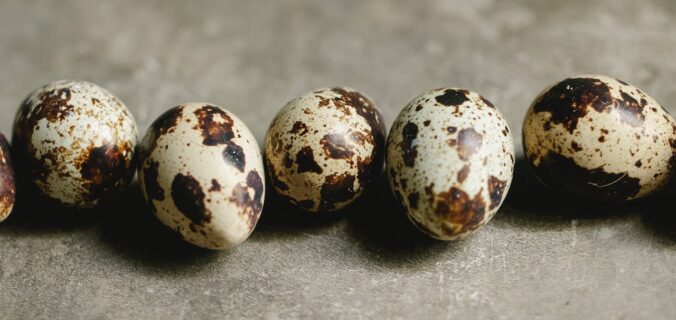Hello there! If you’re raising quail for eggs, you want to make sure you are getting the most out of your birds. As someone who has been raising quail for eggs for a few years now, I want to share with you some tips for maximizing egg production.
Provide enough light
Quail, like other poultry, need a certain amount of light to stimulate egg production. The ideal light schedule for quail is 14-16 hours of light and 8-10 hours of darkness. You can achieve this by using artificial lighting in your quail coop or by positioning your coop in a location that gets plenty of natural light.
Feed a high-quality diet
Quail require a diet that is high in protein and nutrients to produce healthy and abundant eggs. A good quality game bird feed with at least 20-24% protein is recommended. You can also supplement their diet with fresh greens, fruits, and vegetables, as well as grit and oyster shell for calcium.
Provide clean water
Clean and fresh water is essential for quail to maintain good health and egg production. Make sure to provide your quail with clean water every day. Check their waterers regularly to make sure they are not clogged or dirty.
Keep the coop clean and dry
A clean and dry coop is important for the health and well-being of your quail. Make sure to clean the coop regularly and provide fresh bedding, such as straw or wood shavings. You can also sprinkle diatomaceous earth in the bedding to help control parasites and insects.
Provide enough space
Quail need enough space to move around and exercise, which is important for their health and egg production. A general rule of thumb is to provide at least 1 square foot of space per quail. If you have a small coop, consider using stacking cages to maximize space.
Manage stress
Stress can negatively impact egg production in quail. Avoid overcrowding, aggressive behavior, and sudden changes in their environment. You can also provide hiding places or toys in the coop to help reduce stress.
Collect eggs frequently
Collecting eggs frequently can help prevent them from getting broken or eaten by the quail. It can also help stimulate the quail to lay more eggs. Make sure to collect the eggs at least once a day. Handle them gently to avoid cracking or damaging the shells.
Monitor egg production
Keeping track of your quail’s egg production can help you identify any problems or changes in their health or environment. Use a simple chart or spreadsheet to record the number of eggs laid each day, and compare it to previous weeks or months. If you notice a sudden drop in egg production, investigate the cause and take action if necessary.
In conclusion, maximizing egg production in quail requires providing enough light, feeding a high-quality diet, providing clean water, keeping the coop clean and dry, providing enough space, managing stress, collecting eggs frequently, and monitoring egg production. By following these tips, you can ensure that your quail are healthy, happy, and laying plenty of delicious eggs.
